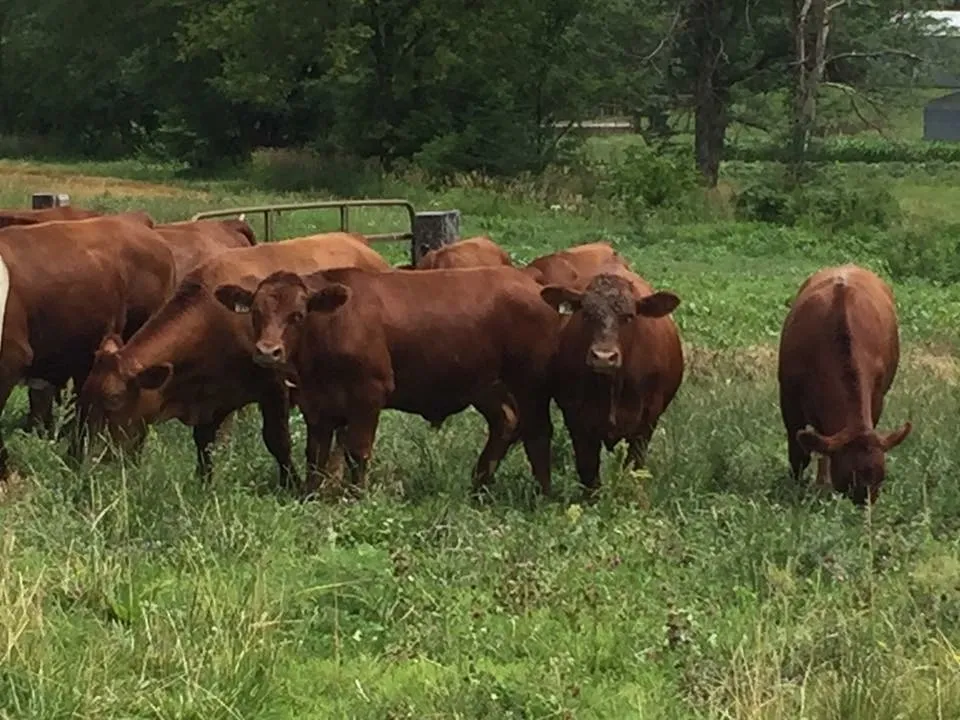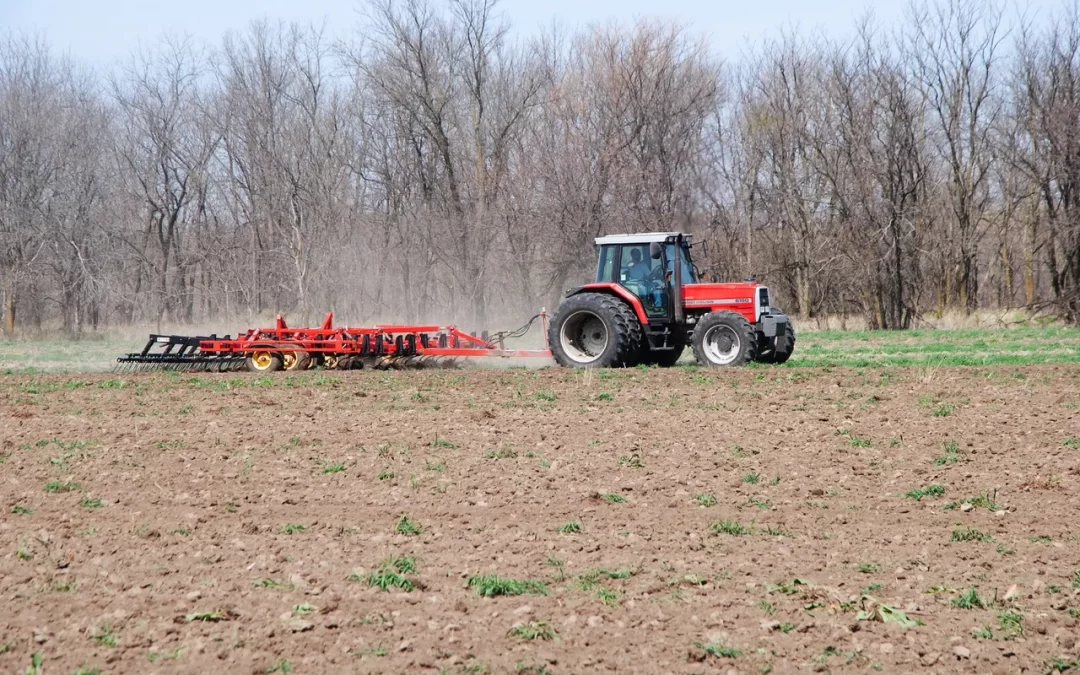Farm Crisis leads to innovation
The 1980s were not kind to family farms. A decade before, strong national and international economies led to ideal economic conditions for farmers. Farmers took advantage of international markets clambering for American produced food, selling their crops with relative ease. They secured loans at relatively low-interest rates, allowing for the purchase of land and equipment, and their operations grew–the average farm size increasing by nearly 200 acres.
But by the early 1980s, farmers faced a crisis the likes of which had not been seen since the Dust Bowl fifty years earlier.
The relatively low interest rates that allowed for the cheap purchase of land and equipment ballooned. International markets that had once been ravenous for US imports became inaccessible. Farmers across the country, unable to sell their harvests or secure loans, lost their land, their equipment, and their homes.
Jack Geiger’s family operation—based in Kansas since 1856—had a choice to make.

Transition to organic leads to financial stability
“Our transition to organic started in the 80’s farm crisis,” Geiger recalled. A low input approach to farming not only made sense but was necessary due to the cost of synthetic fertilizers, pesticides, and herbicides.
Abstaining from the use of synthetic inputs had an added bonus. The Geiger farm would naturally transition to organic, allowing them to sell their harvests for more. “It…became apparent that pursuing value added production aided us in improving the economic viability of our operation,” Geiger said.
The transition to organic allowed Geiger and his family to enjoy economic stability. The benefits of operating organically led to the entire Geiger farm transitioning from conventional agricultural practices to organic practices—a relatively recent development in the agriculture industry.
“In the late 80’s and early 90’s, OCIA was one of the only reputable certification groups,” Geiger recalled. Since that time, the organic industry has flourished. Geiger’s farm has as well.
“We are fully organic,” Geiger said, “and we transition immediately when we gain possession of a [new] parcel of land.”
Communication is key
Although Geiger and his family have a long history of operating organically, challenges persist. Communication is key, according to Geiger.
“Sometimes reviewers can be myopic or dogmatic,” Geiger said, “and producers can be overly entrenched in their production method or style.”
Compromise on organic regulations isn’t possible, so at times operators must make concessions in their own production method to remain compliant, or they risk losing their organic certification.
The best way to weather these challenges, though, is with a positive attitude. “Be patient,” Geiger said, “be persistent, and be open to suggestions.”
Such an approach has allowed Geiger and his operation to successfully confront challenges and setbacks.
Are you a farmer, rancher, or processor who has transitioned to organic with OCIA International?
This post is part of a series featuring OCIA International certified organic operators from Canada, Mexico, Nicaragua, Peru, and the United States. Are you an OCIA operator interested in being featured? E-mail us at info@ocia.org for more information.
Every operator’s path to organic is different. Read more from our “Operator Spotlight” series to learn about the different paths to organic certification.
- Bessette Creek Farm: Through traditional organic farming methods like the use of cover crops and crop rotation, Bessette Creek Farm improved the quality of their soil, reduced their water usage, and now better retains moisture in their soil even during the driest months of the year.
- Askegaard Organic Farm: For Mark and his family, transitioning their conventional family farm to an organic farm just made sense. Organic practices–focused on creating sustainable environments and providing consumers with transparency–aligned with their values.
- Allan Kettle: In the mid-1990s, Allan Kettle decided to organically certify his Alberta farm. For Allan, the decision to pursue organic certification was easy. Allan’s father, who operated the farm before him, had never used synthetic fertilizers or sprays. Allan continued those practices when he took over the farm.
- Variety Coffee: Variety Coffee has a simple mission: provide customers with the freshest, highest quality coffee possible. The Brooklyn based coffee roster and chain of cafes does this by sourcing coffee beans from around the world, focusing on acquiring beans that reflect growing seasons of different coffee producing regions.
- Edelman Certified Organic Farm: Brad Edelman’s passion is sustainable agriculture. The Kansas based farmer has made it his life’s work to farm sustainably and help others make the transition to sustainable practices.
Learn more about organic agriculture, certification, and OCIA International.
- Should you transition to Organic?: The decision to transition a conventional operation to organic is deeply personal. Organic certification requires resources, like time and money, and perseverance in the face of the challenges that you will inevitably encounter along the way. Is transitioning to organic the right step for your operation?
- Organic Certification Process: All operators seeking initial organic certification must complete a similar six step process regardless of which certification agency they partner with. The certification process can feel intimidating at first, but knowing what to expect can help alleviate much of the stress you might initially feel.
- Organic System Plan: Everyone seeking organic certification–whether applying for the first time or the seventeenth time–must submit an updated Organic System Plan (OSP). But what is an OSP? And more importantly, how will it help you beyond certification?
- Healthy Soil: Cultivating healthy soil requires establishing ecological balance and increasing biological diversity. But how can you establish healthy soil on your farm?
- Why Certify with OCIA?: Choosing an organic certification agency is one of the most important points in an operator’s certification process. Let us tell you why OCIA is the right choice for you.

